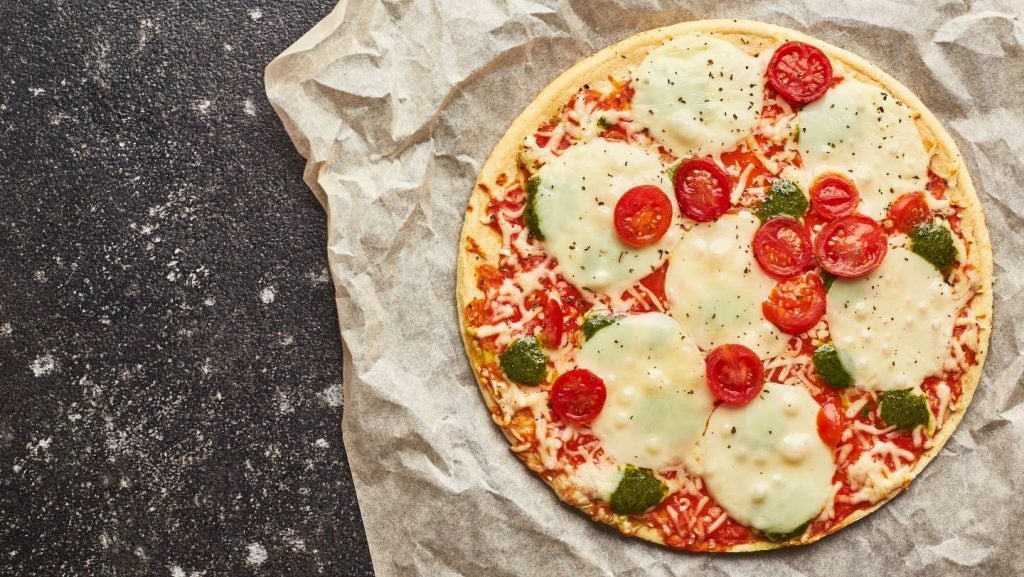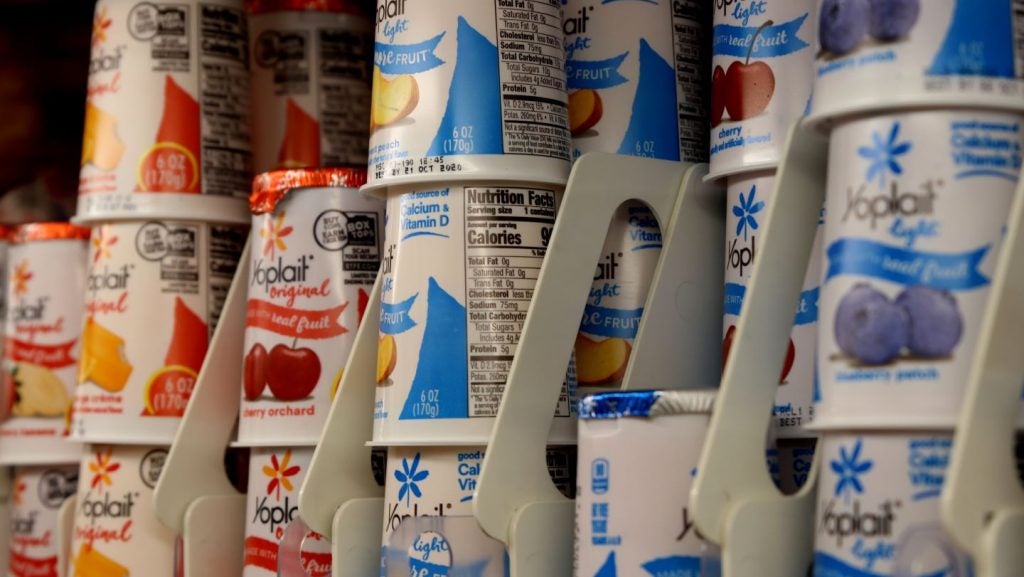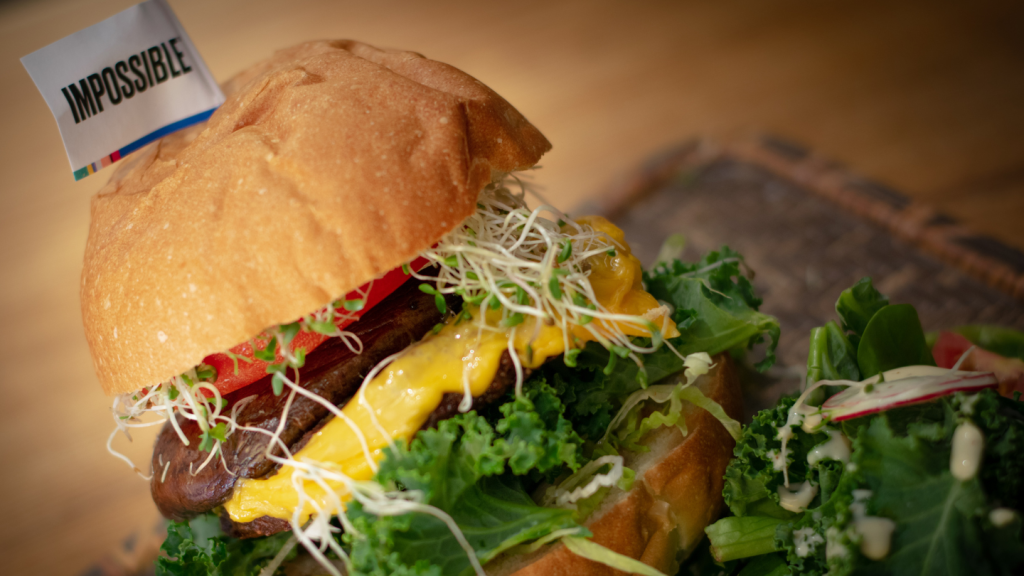
Alongside our daily news coverage, features and interviews, the Just Food team sifts through data sets to bring you a round-up of the week in numbers.
Nestlé disappointed as the Swiss giant’s key growth metric turned negative again as “intense competition” in US frozen food sales took its toll.
The first-quarter decline in the real internal growth (RIG) measure, which strips out pricing from organic growth to reflect changes in volumes, was more pronounced in Nestlé’s North America division than the group result.
CEO Mark Schneider, however, is confident the decrease is temporary, with expectations RIG will rebound in the coming quarters.
Unilever, meanwhile, saw its nutrition business unit volumes decline in the opening three months of the year but the drop was self-inflicted as CEO Hain Schumacher trims the portfolio in Europe.
Also in Switzerland, infant formula and dairy ingredients group Hochdorf, which delivered net losses in the past two years, put its whole business up for sale.
How well do you really know your competitors?
Access the most comprehensive Company Profiles on the market, powered by GlobalData. Save hours of research. Gain competitive edge.

Thank you!
Your download email will arrive shortly
Not ready to buy yet? Download a free sample
We are confident about the unique quality of our Company Profiles. However, we want you to make the most beneficial decision for your business, so we offer a free sample that you can download by submitting the below form
By GlobalDataThe decision creates an uncertain future for the company’s Bimbosan and Babina baby-food brands, which sit within Hochdorf Swiss Nutrition covering operations in Switzerland and overseas and includes ingredients.
In the UK, the CEO of Reckitt Benckiser would not be drawn on whether the group will consider selling its infant-nutrition business, which has been hit with litigation in the US after a baby died after being fed its Enfamil Premature 24 powder.
Nestle wounded
After real internal growth halted a run of quarterly declines in the final three months of 2023, Nestlé disappointed as the metric resorted to negative territory at the start of the new year.
Nestlé CEO Mark Schneider, however, is confident RIG will bounce back over the next few quarters after posting the largest drop in the first quarter since the final three months of 2022.
Schneider said Nestlé is “spring loaded for a significant rebound” in RIG, helped by the performance of the so-called billionaire brands such as KitKat chocolate, Purina pet care and Nespresso coffee.
“As we pivot from price to RIG-led growth and the competitive environment changes, our ability to build on the strength of these billionaire brands by maintaining their relevance with consumers will drive growth,” Schneider explained.
The key RIG metric fell 2% in Nestlé’s opening quarter of 2024 due to “weakness” in frozen pizza and snacks in the US as lower-income consumers turned to private label.
Speaking on her first results call since becoming CFO on 1 March, Anna Manz said Nestlé encountered “intense price competition” in frozen pizza and snacks during the quarter, while retailers also cut inventories.
Nestlé’s 2023 exit from the frozen meals segment in Canada also played a part in the RIG downturn, Manz said, describing the metric’s decline as “atypical”.
She added the first quarter was an “interruption to the steady progress Nestlé has been making on improving RIG”. However, bar the final three months of 2023, the gauge had been negative for five straight quarters.
“The important message here is that this is a temporary issue,” Manz said. “The contributing factors are already correcting, and we expect clear proof of our progress in the second quarter.”
Unilever optimism
The FMCG giant reported another drop in nutrition volumes linked to slimming down of SKUs in Europe, although the decline halved from the prior quarter.
CEO Hein Schumacher is confident sales volumes in its nutrition business will grow again in the second quarter as the negative effects of portfolio cuts in Europe start to fade.
Schumacher said the group “expects improvement in that segment from quarter two onwards”, with its “conscious de-listings” now behind them.
Volumes from Unilever’s nutrition division, which includes brands such as Marmite spread and Colman’s mustard, fell 0.4% in the first quarter of 2024, compared to a 1.1% decline in the previous three months.
Underlying sales for its nutrition unit grew 3.7% in the first quarter. Divisional turnover for the period was flat on the previous quarter at €3.4bn ($3.65bn).
In a discussion of the results with analysts, Schumacher was asked whether Unilever is starting to see the gains private-label has recently made level off.
“I think it’s fair to say that from what I see in our categories, yes, it’s plateauing”. He added Unilever felt a need to boost its “promotional intensity” in the first quarter “because we really felt that we had to draw a line on the volumes there”.
Hochdorf gloom
The Hochdorf holding company's decision to explore talks for a full-blown disposal follow previous discussions for either a partial or complete sale of the company’s operations.
At the top of the corporate structure is Hochdorf Holding, within which sits the Hochdorf Group housing the two units infant nutrition and dairy food solutions. In 2015, the pair of divisions were merged into Hochdorf Swiss Nutrition (HSN), which covers “all activities in Switzerland” and the “export business”.
On the sale talks announced in March, Hochdorf said this week the “discussions to date have clearly shown that there is currently no realistic prospect of finding investors or buyers for the entire Hochdorf Group or for the holding company, Hochdorf Holding Ltd., which has high levels of debt”.
It added: “Consequently, the company is now focussing on the potential sale of the subsidiary Hochdorf Swiss Nutrition Ltd (HSN), which runs the operational business, as the most viable solution.”
Hochdorf has been reorganising for a number of years, including previous disposals of businesses from cooking oil to snacks, along with manufacturing plants.
The company booked a net loss in the year to 31 December of SFr10.2m ($11.1m), down from a SFr15.7m loss in the prior 12 months. Revenues have also been in decline in recent years, despite an uptick in 2023, when EBITDA also bounced back to profit.
Hochdorf operates from two factories – one in the Swiss village of the same name in Lucerne canton and the other in Sulgen, Thurgau.
The company reiterated the ongoing financial burden from its loans and bond commitments, which, it said, are “difficult to be paid off from Hochdorf Holding Ltd.’s own resources, despite a competitive business model”.
Reckitt woes
CEO Kris Licht failed to rule out a potential split of its Mead Johnson infant-nutrition business amid ongoing litigation against Reckitt in the US.
Mead Johnson, which produces the Enfamil and Nutramigen formula brands, is facing the prospect of incurring as much as £2bn ($2.5bn) in damages related to the life-threatening necrotizing enterocolitis (NEC) disease, which effects premature babies.
According to Barclays, which put forward the worst-case-scenario for damages in March, that there are around 400 NEC cases pending in the US. The report followed Reckitt’s award of £60m to Jasmine Watson, the mother of a baby who died from the disease, after being fed Enfamil Premature 24 powder produced by Mead Johnson.
As Reckitt reported first-quarter group revenue of £3.7bn, Licht was questioned on an analyst call over the prospect of spinning off Mead Johnson, which sits within the company’s nutrition unit, the smallest of its three business areas.
“It is not prudent, I think, to speculate right now on structural moves that we may or may not consider,” Licht responded.
“We are spending a lot of time thinking about how to best navigate the litigation, how to prevail in the litigation, and we remain confident that we will prevail because the science is clear.”
The nutrition division delivered first-quarter revenue of £591, representing a like-for-like decline of 9.9%, compared to a 1.5% increase for the group. Volumes for the unit were down 9.4%, with a negative price-mix of 0.5%.
However, Reckitt insisted the declines were due to the “continued rebasing in US nutrition”, linked to the elevated demand in 2022 from a general US shortage of formula as a knock-on effect of a recall by Abbott Laboratories.







